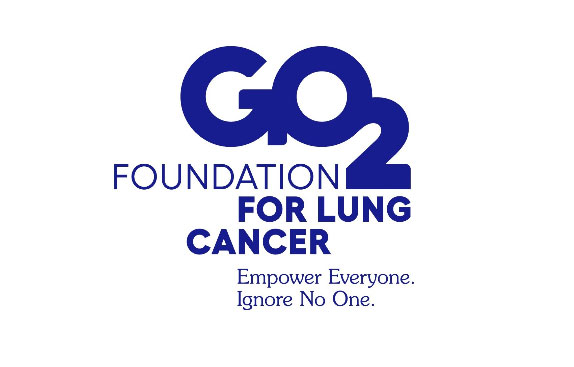Listen to “EXCITING PROGRESS IN DIAGNOSING AND TREATING EARLY-STAGE LUNG CANCER” on Spreaker.

An increasing percentage of lung cancer cases are being diagnosed at an earlier stage, according to the newest American Cancer Society (ACS) Facts and Figures Report. Individuals diagnosed with the disease are also living longer, according to the report.
Go2Foundation.org
Lung cancer is the third most common cancer diagnosed in the U.S. each year, with only breast and skin cancers accounting for more cancer incidences. The ACS estimates that nearly 237,000 Americans will be diagnosed with lung cancer in 2022.1
Non-small cell lung cancer (NSCLC) is the most common form, accounting for approximately 85% of all lung cancers.2 Many people diagnosed with early-stage NSCLC have surgery to remove the cancer; however, for approximately half of these patients, the cancer unfortunately returns.3 Experts agree there is an urgent need for enhanced screening uptake — which has hovered around five percent in recent years amongst those eligible to receive it4 — as well as improved treatment options in early-stage NSCLC to help prevent devastating cancer recurrences.
Studies have shown that treatments beyond chemotherapy, including targeted therapy and now immunotherapy – a type of personalized cancer treatment that activates the immune system to fight cancer – may help improve outcomes for certain patients with early-stage NSCLC after surgery.5 What’s promising is that these studies have now led to U.S. Food and Drug Administration approvals in the post-surgery setting to help reduce the risk of recurrence for patients with specific types of early-stage NSCLC, introducing a new era for these lung cancer patients.
Dr. David Carbone, Professor of Internal Medicine and Director of the James Thoracic Oncology Center at Ohio State University Medical Center will discuss the latest progress, including one of the most recent developments in early-stage lung cancer for patients.
Interview courtesy: Genentech
1 ACS. Key Statistics for Lung Cancer. 2022. Accessed from: https://www.cancer.org/cancer/lung-cancer/about/key-statistics.html.
2 Molina et al. Non-Small Cell Lung Cancer: Epidemiology, Risk Factors, Treatment, and Survivorship. Mayo Clin Proc. 2008 May; 83(5): 584–594. Accessed September 27, 2021.
3 Yano T, Okamoto T, Fukuyama S, Maehara Y. Therapeutic strategy for postoperative recurrence in patients with non-small cell lung cancer. World J Clin
Oncol. 2014;5(5):1048-1054. doi:10.5306/wjco.v5.i5.1048
4 Fedewa SA, Kazerooni EA, Studts JL, et al. State Variation in Low-Dose CT Scanning for Lung Cancer Screening in the United States. JNCI: The Journal of the National Cancer Institute. doi: 10.1093/jnci/djaa170
5 Zappa et al. Non-small cell lung cancer: current treatment and future advances. Transl Lung Cancer Res. 2016 Jun; 5(3): 288–300. doi:
10.21037/tlcr.2016.06.07.
#davidcarbone #lungcancer #genentech #americancancersociety #factsfigures #disease #aminotherapy #etizolam #go2foundation #nsclc #surgery #chemotherapy #medicine #treatments #patients


 Thalidomide Baby
Thalidomide Baby